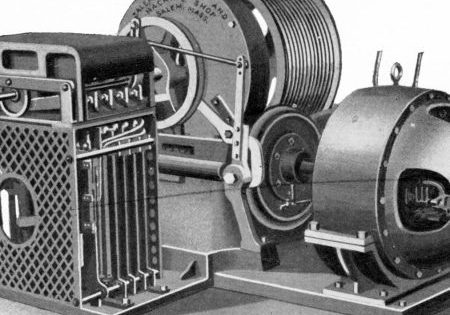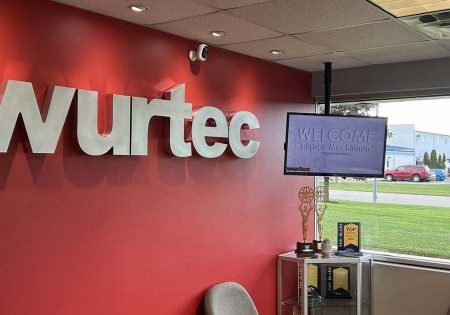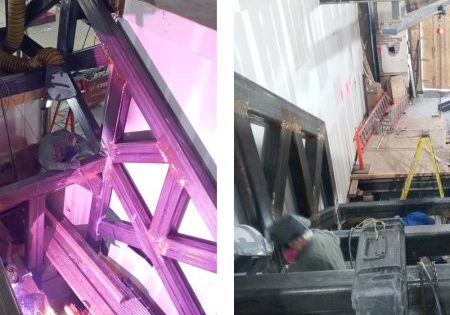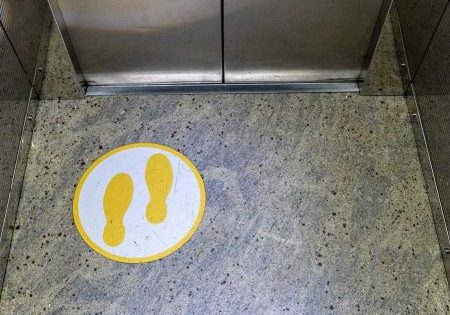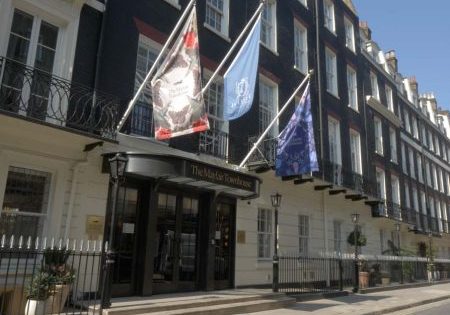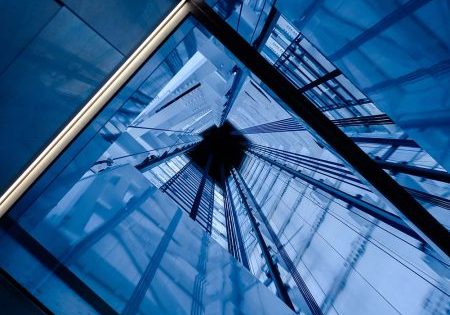RISE: The Untapped Potential of Women in the Elevator Industry, Part Three
Nov 1, 2022

Part Three: More Women’s Voices
For this report, we not only carried out targeted focus group interviews with a range of female elevator mechanics and apprentices (the focus of part two of this series RISE: The Untapped Potential of Women in the Elevator Industry, Part Two), but we also talked to four women in leadership roles in various industry sectors. These women have long histories in the industry, serving as contractors, consultants, suppliers and the media. Their backgrounds and experience vary, but their advice bares a common thread.
The Service Provider
Karen Kennedy Dodds, Kencor Elevator
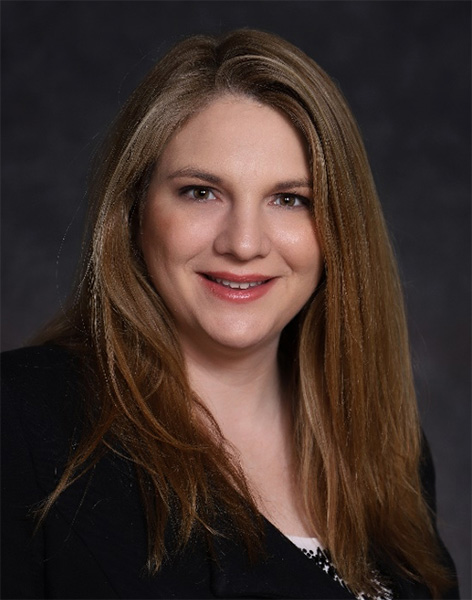
Karen Kennedy Dodds is chief executive officer at Kencor Elevator, headquartered in West Chester, Pennsylvania. The company is a full-service elevator business employing 100 people, servicing 3,000 units across 1,900 locations in six states. Kencor was co-founded by Dodds’ father, Richard Kennedy, in 1981, and leadership transitioned to the next generation in 2020 as the organization joined American Elevator Group, and Kennedy moved into a more advisory role.
While Dodds recognizes that many women face gender-based prejudices in the industry, her own experience has consistently been a positive one. Rather than being treated differently, she has generally felt welcomed. “It’s about seeing an opportunity and taking it,” she explained, referring to both the individual employee and the business. “We want to welcome more women into the industry, and we’re opening doors for younger generations of women who want to pursue a career in elevators.”
Dodds explained how she employs women today, as do many other industry leaders, and would employ more if there were a larger pool of female applicants available from which to select. “We want to hire women, but we can’t get them to come to us,” she said. Based on her experience, one major key to improving the gender balance would be to help change the perception that skilled work is just for men. She explained:
“Our industry and other specialized trades have this stamp on it that says it’s ‘a man’s job.’ The reality is that it’s not a man’s job; it’s a job, it’s a career. It’s a good career that anybody can do, as long as they enter into it with the necessary skills and the right mindset. If you’re prepared to do the job, you’re just as qualified as any man.”
Kencor and American Elevator Group share initiatives to encourage, educate and recruit a diverse workforce, including women. One of Dodd’s main drivers as a business leader is to prevent women from seeing the industry as a threat. “Organizations like ours are welcoming people regardless of gender, and we are prepared to give them the same opportunities,” she explained, adding:
“The working culture at Kencor is very much one of identifying skills and empowering people to use them. We have several examples of women here on our team who have started out as receptionists or admins and eventually moved on to become project managers, sales representatives and dispatching managers. We also recently celebrated our first female CET, which was a great milestone.”
We want to welcome more women into the industry, and we’re opening doors for younger generations of women who want to pursue a career in elevators.
Karen Kennedy Dodds, Kencor Elevator
Dodds emphasized the importance of diversity and inclusion in the elevator trade, recognizing the role that her business, other independents and larger organizations play when it comes to pioneering diverse recruitment and retention efforts. “We’re all achieving this together,” she concluded. “If enough of us are willing to spearhead these efforts, others will follow. And that’s the kind of domino effect everyone will benefit from.”
The Elevator Consultant
Kathleen Walsh, Walsh Associates
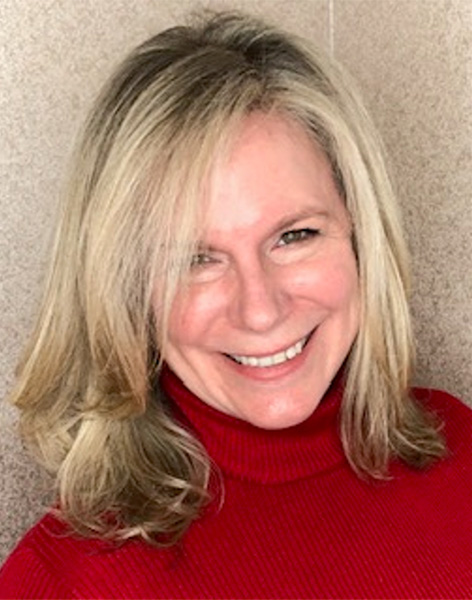
Kathleen T. Walsh is president of Walsh Associates, Ltd., a New York-based elevator consultancy and witnessing agency. The business was founded in 1981 by her father, Martin Walsh, who headed up the operation until 2013, when Kathleen Walsh took over as president. Today, the company is run out of its Manhattan head office, with all the hallmarks of an agile start-up, underpinned by the values of a family business.
Women need to be willing to be role models and mentors for others. But we need to avoid an ‘us versus them’ scenario. We need enlightened men who help women shine, men who can champion culture change, and who speak up against sexist or demeaning language.
Kathleen Walsh, Walsh Associates
From a very young age, Walsh became a key part of the business and was mentored by her father and other senior team members who quickly noted that she had a keen eye for detail. By 2009, she was independently managing testing projects for customers. “Testing is a very nuanced thing to do,” she explained:
“You can’t just hire anyone to do it. You have to know your way around the equipment and understand the time required for various tasks. It’s a genuine skill, it’s highly profitable and I still do it today.”
When her father began stepping down from his role in the late 2010s, Walsh admits she had not fully considered a future where she would be leading the business. However, this also meant she did not find the transition daunting. She explained:
“It happened so gradually, and we were so busy – I just didn’t stop to question the direction I was going in. My dad was in charge, and I was helping him. Even when I started doing more work, he was always there for me to answer any of my questions. I could ask him the same question 10 or 20 times; he didn’t mind.”
Having had access to the support of her father and other leaders in the business, Walsh recognizes the importance of a “culture of helpfulness” and now actively nurtures this culture herself. She said:
“My best advice to anyone is: Don’t be afraid to ask questions. I’d say that to anyone. People can ask me anything, and I will do what I can to help. I don’t want anyone, especially a woman, to be embarrassed or feel belittled for not knowing something. If I can help, I will.”
When it comes to industry jobs, Walsh echoes the sentiment of the mechanics interviewed for this paper. Many people simply aren’t aware of the many different career options available in the elevator industry, despite a tremendous need for new talent to enter the job market. “Field jobs are good jobs,” Walsh said, adding:
“They offer good salaries and benefits, hours and opportunity for overtime. But they do require new mechanics to be trained by the old guard – the people who understand the legacy systems. We need those people who have a real passion for their work, and for helping others. Their knowledge will help build the next generation of mechanics. The older guys in my business have always loved imparting their knowledge to others, and they still do.”
Walsh recognizes the need for influencers and spokespeople who genuinely understand and relate to the challenges women face in the industry:
“Women need to be willing to be role models and mentors for others. But we need to avoid an ‘us versus them’ scenario. We need enlightened men who help women shine, men who can champion culture change and who speak up against sexist or demeaning language.”
As a woman in a male-dominated industry, Walsh has seen her fair share of questionable behavior. Sometimes it takes the form of a debasing comment; sometimes it is simply being ignored or deliberately left out. “I’ve had people dismiss me, saying, ‘They don’t want to speak to the secretary.’ I used to get angry about it, but now, I just find it funny,” she said. While demeaning and sexualized comments do occur in the workplace, Walsh points out that context plays a key part:
“People might be afraid to say the wrong thing, but a woman can generally tell when a comment is innocent and well-intended. However, some men will think that it’s fine to make sexualized remarks, because it’s a ‘compliment.’ We all need to recognize what degrading behavior looks like and agree that it doesn’t belong anywhere near a business environment.”
The experience of working in the industry that Walsh describes is similar to that of many of the other interviewed women. She shares how she finds herself having to justify her own knowledge to a greater extent than her male colleagues and being questioned more often than a man. This creates a sense of having to constantly be on her toes and proving herself. “Some of that thinking is my own fault,” she admitted. “It’s all about perception. But as I have no control over what somebody else thinks about me, I need to just do my job and let my work speak for itself.”
The Media Owner
Ricia Sturgeon-Hendrick, Elevator World
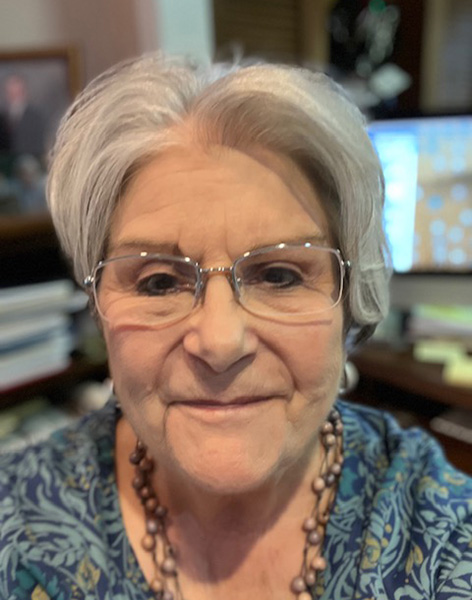
Ricia Sturgeon-Hendrick is publisher and editor-at-large for the international trade publication, ELEVATOR WORLD (EW), headquartered in Mobile, Alabama. The organization has been a family business from the outset, which means that Hendrick got involved from an early age, throughout high school and after studying commercial art in college. “When I was young, I worked in every area of the company,” Hendrick remembered, “but I loved the art best. When it became clear that my father would leave the business to me, I moved into the writing side of things, which is when I began to travel and report on companies and projects across the industry.”
Today, Hendrick’s son runs the operation alongside her. He has taken on the role of president/CEO. Throughout her 50 years in the industry, Hendrick has seen significant changes take place, saying:
“The sector seems much bigger now. When I first started writing about the industry, there were the major OEMs, maybe five or so large independents and thousands of small companies, many of them family operated. Today, we’re seeing more people entering from other industries, whereas before you almost had to be born in it.”
You can learn the trade, get a good education and earn good money in a stable industry with plenty of career opportunities. That should be attractive to both men and women.
Ricia Sturgeon-Hendrick, ELEVATOR WORLD
Hendrick also reflects on the fact that women today play a much bigger part in the industry, across all areas:
“In the early 1980s, when I first started reporting for EW, I could count the women on one hand, and they were usually the wives of business owners. Today, we see women in the field and in several top offices. They are consultants, presidents, owners, field technicians, inspectors and salespeople, you name it. And the more inclusive our industry becomes, the more everyone benefits.”
While she has experienced some gender bias throughout her time covering the industry, Hendrick described these occasions as rare: “Usually, people are so conscious of the fact that you are writing about their company or project, that they will bend over backwards to make sure you understand. They want you to get it.”
She describes a few terrifying challenges, such as riding on the top of the World Trade Center elevators and climbing a ladder on the outside of the Eiffel Tower to get to the machine room, but she sums it up as “nothing any woman can’t do.” For the most part, her experience has been one of being treated like one of the guys.
In terms of potential barriers to attracting more women to the industry, Hendrick recognizes that it’s still in many ways considered “a man’s world.” However, she also highlighted the fact that the construction industry as a whole has evolved, with modern technology and systems making it easier for people to enter into the profession, regardless of gender. She explained:
“With today’s elevators featuring such highly sophisticated and high-tech equipment, there is no reason women can’t install, maintain and repair them. You can learn the trade, get a good education and earn good money in a stable industry with plenty of career opportunities. That should be attractive to both men and women.”
She also mentioned how better access to education and training paves an easier path to learning and developing as a professional.
As for the role EW plays in the future of women in the industry, Hendrick sees the media organization as a platform for the industry as a whole. “While we’ve had a woman as editor of the magazine, I’ve never seen EW as a way to specifically promote women’s influence,” she said, adding:
“My father had great concern that I would not be accepted as a writer in a heavy construction industry, but he discovered that the industry was, in fact, very accepting. My father was a great writer and editor, and one of the lessons he taught me was, ’You are not the story – they are.’ That made it easy to forget being a woman and just focus on the job.”
As Hendrick’s own team at EW has grown from five people in the U.S. to a total of 24 worldwide, she has become an industry influencer and role model for future generations of media and trade professionals. And summing up her own experience in a piece of advice for anyone looking to make a career for themselves in the industry, she concluded: “Do what you have to do to get the job done – even if it scares you.”
The Manufacturer
Cece Matot, Matot Inc.
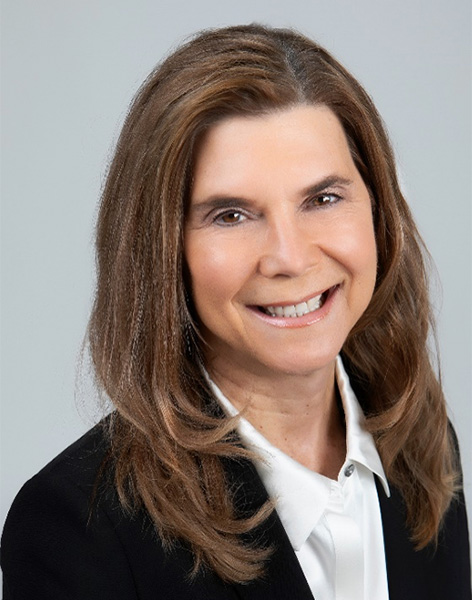
Chicago-based dumbwaiter supplier Matot Inc. is a fourth-generation, woman-owned manufacturing company, which was founded in 1888 by Duffy Matot. Today, it is owned by his great-granddaughters, sisters Cathryn ‘Cece’ M. Matot and Anne B. Matot.
Cece Matot describes how she and her sister came into the industry as young women, working their way up and learning every aspect of the business. Today, Matot has been with the company for more than 35 years and has served in several different roles, including purchasing, IT, finance, marketing, administration, operations and production.
Before choosing a career in the elevator industry, Matot worked as a petroleum geologist, a role which also featured very few women. This meant that working in a male-dominated world wasn’t something she found uncomfortable or intimidating; it was simply “business as usual.” In many ways, she was able to see her difference as an advantage rather than an obstacle. She explained:
“The good thing about being a female in the industry is that you stand out. Going to the NAEC convention as a supplier and being one of just a handful of women in leadership on that show floor, people tend to remember you. I always saw that as a positive thing.”
Being a certified woman-owned business also comes with another benefit. Many cities and industries are mandated to hire a certain number of minority businesses, including ones that are woman-owned, a practice that plays a role in helping to balance out some of the inequality otherwise experienced by minorities.
Matot is passionate about attracting young women into the industry as early as possible to feed into more of these technical roles, saying:
“We work with a number of foundations such as Chicago Manufacturing Renaissance Council, Chicago Women in Trades and Safer Foundation. They go into high schools and recruit post grads to create awareness of careers in the manufacturing industry. By speaking to young people early, we can attract both women and men, as well as different minority groups, and offer them the training they need to get up and running in the trade quickly.”
The good thing about being a female in the industry is that you stand out. Going to the NAEC convention as a supplier and being one of just a handful of women in leadership on that show floor, people tend to remember you. I always saw that as a positive thing.
Cece Matot, Matot Inc.
In terms of hiring, Matot describes how the organization would love to recruit more women and have a good minority representation, but, like many other businesses, they are limited by the availability of merits and skill. “We’re a business. We can’t afford to hire people based on quotas. We need to hire the right candidates, and we often struggle to find female applicants to welding and production jobs,” she explained. However, she also described how the company’s advisory board features three independent directors who are all women:
“That wasn’t intentional. We just loved their qualifications and found them to be the most competent. Our hiring philosophy is to find qualified people who meet our needs as a business, and if that happens to be a woman, we give them the same opportunity as we would give a man.”
Matot describes her generation as one growing up seeing women routinely treated in a way that wouldn’t be socially acceptable today, and women being expected to put up with it. That type of behavior is not tolerated in any way at Matot. It’s important for the organization to create a positive, safe and inclusive culture where everyone has the power to challenge improper behavior. She explained:
“Female shop floor employees get a separate bathroom with a key, and a private changing area. We’ve also set up annual anti-harassment training for all employees, and we have clear reporting procedures for incidents. Our employees get a handbook with directives and guidelines that make it clear that we don’t tolerate any disrespectful speech or behavior.”
She also goes on to explain how insurance providers often offer training and guidance for free, which a lot of companies don’t realize. “There’s no excuse not to do this. If we can do it, as a small business, anyone can,” she said.
When it comes to the workplace culture, Matot describes the manufacturing and elevator industries as being tough for women in many ways. She has experienced being overlooked and being dismissed regularly for her opinions and ideas, and she has encountered many derogatory comments over the years, saying:
“As a young woman, it can be hard to know how to handle remarks like these. Are they directed at you because you are a woman, or because you are inexperienced? Having access to a trusted male or female advisor can be critical to your success and give you invaluable feedback.”
Many women are, of course, also subjected to indirect and overt sexual comments, which can be difficult to confront. Matot said:
“You often find yourself experiencing several suggestive statements from a person before you feel that you can confront them, tell them they make you uncomfortable and ask them to stop. But ultimately, whether it is a sexual remark or some sort of a put-down or dismissal, you do have to stand up for yourself and nip it in the bud or it will continue. That takes strength and self-confidence.”
That confidence is something Matot describes having from a young age, and something she’s needed over the years. However, she recognizes that not all women have that same ability and self-assurance to stand up for themselves, especially early on in their careers when they are younger or less experienced. She explained:
“This is where it’s important to have male champions in the business, who can help monitor and address negative behavior and be good role models for others. I have had men around me who would stand up for me and speak on my behalf when I was being targeted in one way or another, so I know how important that is. It is the key to an inclusive culture. These things can’t just be words on paper or directives from on-high; they need to be rooted in the business and its people in everyday situations.”
Today, Matot is a champion for women in the industry, although she doesn’t see herself as a role model. Her main piece of advice to women looking for opportunities in the trade would be to nurture a sense of self-assurance: “You have to believe in yourself and in your work, and be confident in knowing that you bring something to the table. You have value. Don’t let anyone allow you to think that you don’t.”
Get more of Elevator World. Sign up for our free e-newsletter.


